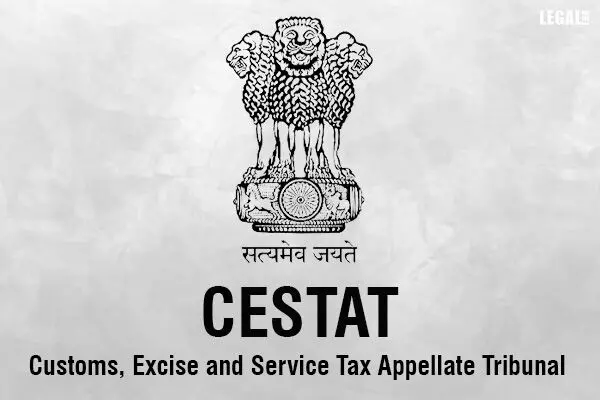- Home
- News
- Articles+
- Aerospace
- Artificial Intelligence
- Agriculture
- Alternate Dispute Resolution
- Arbitration & Mediation
- Banking and Finance
- Bankruptcy
- Book Review
- Bribery & Corruption
- Commercial Litigation
- Competition Law
- Conference Reports
- Consumer Products
- Contract
- Corporate Governance
- Corporate Law
- Covid-19
- Cryptocurrency
- Cybersecurity
- Data Protection
- Defence
- Digital Economy
- E-commerce
- Employment Law
- Energy and Natural Resources
- Entertainment and Sports Law
- Environmental Law
- Environmental, Social, and Governance
- Foreign Direct Investment
- Food and Beverage
- Gaming
- Health Care
- IBC Diaries
- In Focus
- Inclusion & Diversity
- Insurance Law
- Intellectual Property
- International Law
- IP & Tech Era
- Know the Law
- Labour Laws
- Law & Policy and Regulation
- Litigation
- Litigation Funding
- Manufacturing
- Mergers & Acquisitions
- NFTs
- Privacy
- Private Equity
- Project Finance
- Real Estate
- Risk and Compliance
- Student Corner
- Take On Board
- Tax
- Technology Media and Telecom
- Tributes
- Viewpoint
- Zoom In
- Law Firms
- In-House
- Rankings
- E-Magazine
- Legal Era TV
- Events
- Middle East
- Africa
- News
- Articles
- Aerospace
- Artificial Intelligence
- Agriculture
- Alternate Dispute Resolution
- Arbitration & Mediation
- Banking and Finance
- Bankruptcy
- Book Review
- Bribery & Corruption
- Commercial Litigation
- Competition Law
- Conference Reports
- Consumer Products
- Contract
- Corporate Governance
- Corporate Law
- Covid-19
- Cryptocurrency
- Cybersecurity
- Data Protection
- Defence
- Digital Economy
- E-commerce
- Employment Law
- Energy and Natural Resources
- Entertainment and Sports Law
- Environmental Law
- Environmental, Social, and Governance
- Foreign Direct Investment
- Food and Beverage
- Gaming
- Health Care
- IBC Diaries
- In Focus
- Inclusion & Diversity
- Insurance Law
- Intellectual Property
- International Law
- IP & Tech Era
- Know the Law
- Labour Laws
- Law & Policy and Regulation
- Litigation
- Litigation Funding
- Manufacturing
- Mergers & Acquisitions
- NFTs
- Privacy
- Private Equity
- Project Finance
- Real Estate
- Risk and Compliance
- Student Corner
- Take On Board
- Tax
- Technology Media and Telecom
- Tributes
- Viewpoint
- Zoom In
- Law Firms
- In-House
- Rankings
- E-Magazine
- Legal Era TV
- Events
- Middle East
- Africa
CESTAT: Department Not Empowered To Retain Pre-Deposit Amount Paid During Investigation

CESTAT: Department Not Empowered To Retain Pre-Deposit Amount Paid During Investigation
States that Article 265 of the Indian Constitution prohibis levy or collection of tax except by a legal authority
The Allahabad bench of the Customs, Excise and Service Tax Appellate Tribunal (CESTAT) has held that the amount deposited during the pendency of adjudication proceedings or investigation is a deposit made under-protest or pre-deposit. Therefore, the principles of unjust enrichment would not be attracted.
The bench comprising P.K. Choudhary (Judicial Member) observed that the deposits cannot be retained by the tax department. It had no authority to do so, and the amount must be refunded along with interest.
The appellant/assessee is engaged in manufacturing M.S. ingots, bars, etc.
The appellant contended that on 18 April 2012, it was subjected to searches by the officers of the Directorate General of Central Excise Intelligence (DGCEI).
During the investigation, searches were again conducted by the officers of the Central Excise Commissionerate. The officers alleged non-payment or short payment of duty, and the appellant was coerced to hand over two cheques of Rs.20 lakh each. It was on an assurance that the remaining amount of Rs.40 lakh would be paid during the investigation.
On the officers’ insistence, the appellant deposited Rs.30 lakh through e-challans. However, as no show-cause notice was issued on the non-payment or short-payment of duty, the appellant submitted a letter seeking a refund.
The appellant stated that only after the 08 February 2013 letter, a show-cause notice was issued on 06 June 2013. The notice alleged short payment of duty and appropriation of the amount deposited.
The show-cause notice was adjudicated by an Order-in-Original, wherein part of the duty demand was confirmed against the appellant. An amount of Rs.30 lakh was appropriated, and penalties were imposed on the appellant and some other persons.
The order was challenged by them and the excise department before the tribunal. By the final 31 July 2018 order, the appeal filed by the appellant and others was allowed. But the tax department’s appeal was dismissed.
Thereafter, the appellant sought a Rs.30 lakh refund deposited during the investigation, which, upon verification, was allowed. It held that the amount was deposited under protest. Thus, in terms of the second proviso to Section 11B (1) of the Central Excise Act, 1944, the limitation of one year did not apply.
It added that even while assuming without conceding that the amount of Rs.30 lakh meant excise duty, the limitation bar of one year was not applicable. Since, in terms of the order passed by the tribunal, the appellant was not liable to pay any duty, Rs.30 lakh could not be retained by the department as Article 265 of the Indian Constitution prohibited levy or collection of tax except by a legal authority.
Thus, the CESTAT held that when the appellant was not required to pay any amount, it was clearly entitled to a refund. The revenue department had no authority to retain the amount as it would violate the Constitution of India.



